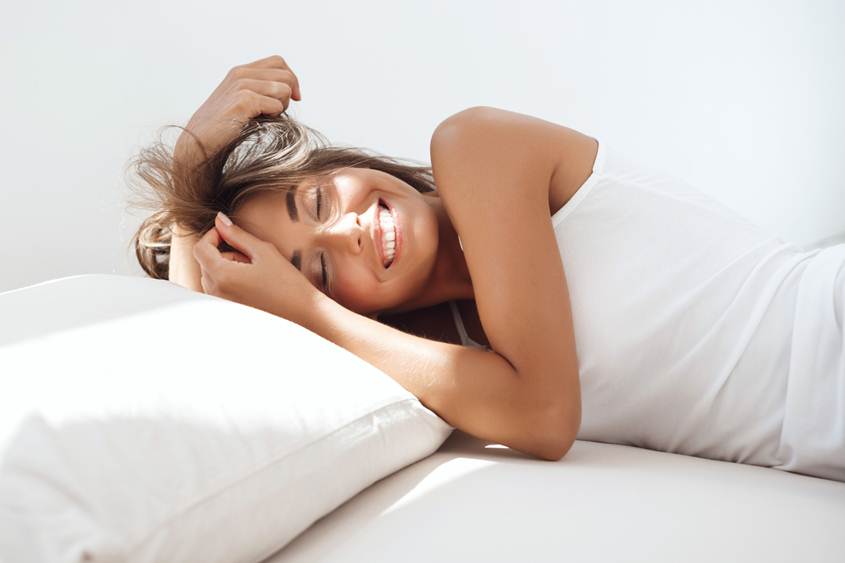
Touch
How comfortable do you feel in your bedroom? The texture and quality of your bed clothes, linen, mattress and pillow all come in to play here. Ambient temperature too – particularly if it’s too hot in the bedroom, your body has to work extra hard to keep your internal temperature just right and this can make it harder to fall asleep and can lessen subsequent sleep quality.
Did you know?
Our core body temperature actually drops at night - a good night’s sleep needs core temperature to drop by a full 1 degree centigrade (1).
Sight
No one doubts the illuminating invention of the electric light. We’d be (literally) lost without it! However, artificial light – the street lamps’ glow through leaky bedroom curtains, LED-containing iPads, mobile phones and laptop screens all serve to disrupt the body’s natural response to the day/night cycle – our so-called circadian rhythm. In response to loss of daylight changes in the brain lead to enhanced production of the hormone melatonin which signals body and brain it’s time to sleep.
Did you know?
It takes longer to fall asleep after iPad reading than reading the printed page. You guessed it – iPads suppress melatonin!
Smell
Lavender has long been used to reduce anxiety and promote sleep, and scientific research bears this out, i.e. the facts are friendly! Studies have demonstrated that inhalation of lavender oil vapour improves sleep efficiency, increases total sleep time, and enhances energy levels and vitality the following morning (2). In addition to lavender, jasmine vapour and cedar extract have also been shown to enhance sleep quality. How this works had long remained a mystery, but recent research (2016) uncovered a sleep-promoting olfactory mechanism in humans that deepens sleep through driving increased slow-frequency brain wave oscillations2.
Did you know?
Once asleep we seem to be immune to otherwise stimulating odours, i.e. we have to first wake up, in order to smell the coffee!

Taste
Heavy foods and stimulants such as caffeine are clearly best to avoid as we near bedtime. In fact, caffeine is particularly long lived in our bloodstream, and a coffee in the early afternoon is likely to still be packing a night-time punch. While we all appreciate that what we eat (and drink) can significantly affect our sleep, it now appears that sleep in turn affects our eating habits. Latest research (2018) suggests a lack of sleep may increase our craving for unhealthy foods (3). It turns out that our feeding behaviour is influenced by a lack of sleep, acting at least in part through our sense of taste.
Did you know?
That bitter taste in the mouth you may sometimes wake up with is normally due to a build-up of sulphur-releasing bacteria due to less saliva production during sleep (our saliva helps break down these bacteria). Little consolation to our significant other – but it’s not me, it’s my bacteria!
Hearing
We all know how hard it can be to get some shut eye in a noisy environment. However, even when we do manage to drift off, your brain continues to process sound signals which, particularly if they are discordant or irregular, can significantly disturb your sleep quality. In fact, if you find yourself feeling groggy despite having an apparently unbroken night’s sleep, chances are noise is the offender.
Did you know?
Not all sounds are disturbing – if in sync with our particular sleep wave frequency some tones actually enhance sleep quality (1). Gives a whole new meaning to a sound night’s sleep!
- Book: Why We Sleep by Matthew Walker, 2017
- Research paper: Pearl et al. Odors enhance slow-wave activity in non-rapid eye movement sleep, 2016
- Research paper: Lv et al. Sleep, food cravings and taste, 2018



